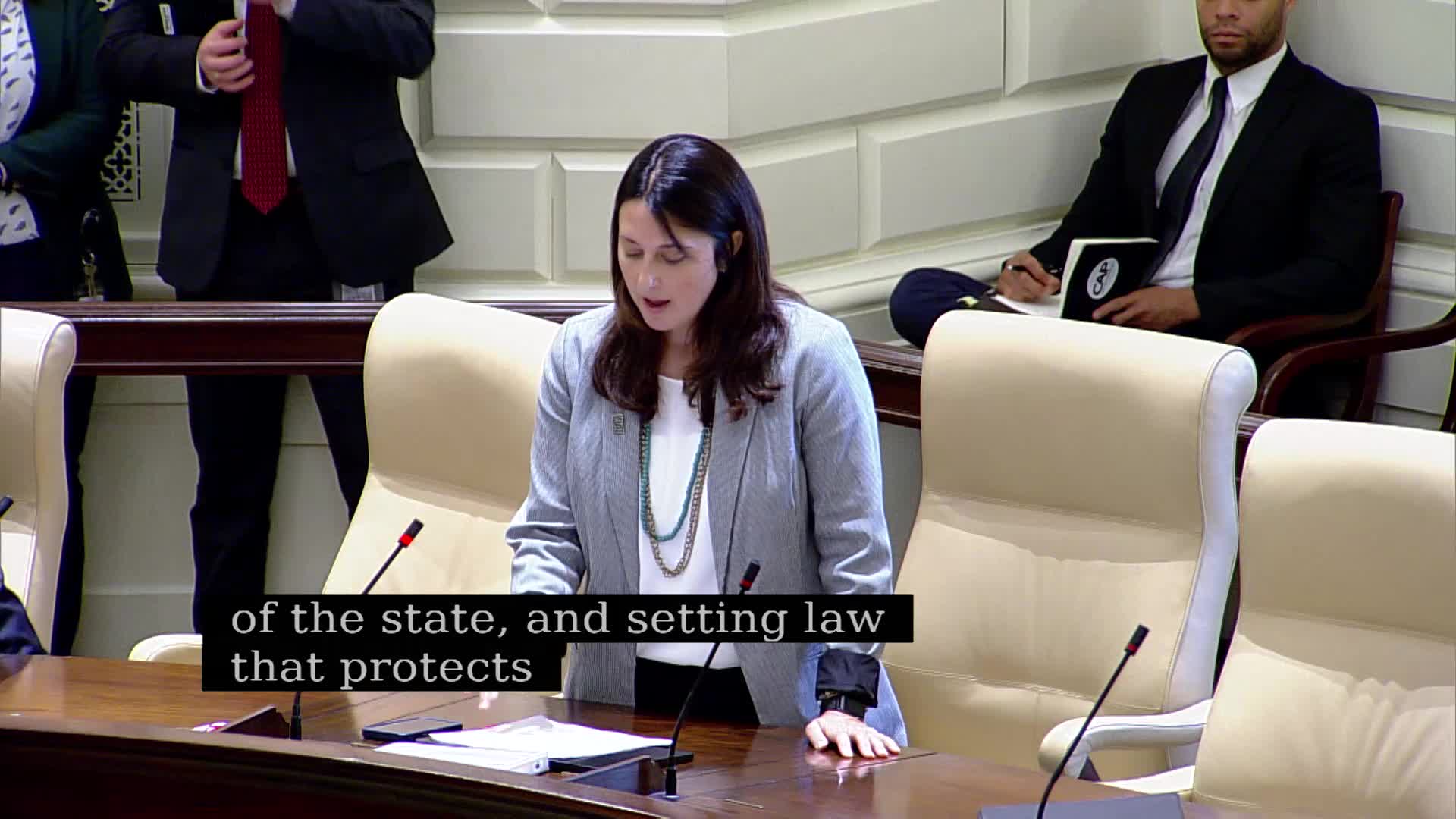Legislature passes bill empowering school districts to implement local policies
July 31, 2025 | Senate, Legislative, Massachusetts
This article was created by AI summarizing key points discussed. AI makes mistakes, so for full details and context, please refer to the video of the full meeting. Please report any errors so we can fix them. Report an error »

During the Massachusetts State Legislature's Senate session on July 31, 2025, a significant discussion emerged surrounding a proposed bill aimed at enhancing local control over school district policies. The bill emphasizes the importance of allowing individual communities to tailor their educational policies to meet specific local needs, recognizing that not all districts are alike.
The key feature of the bill is the establishment of a "bell-to-bell" ban, which mandates that every school district must adopt a policy prohibiting certain practices during school hours. However, the bill also includes provisions for exceptions, enabling districts to adapt the policy based on their unique circumstances. This flexibility is crucial, as it acknowledges the diverse funding levels and educational challenges faced by different communities across the state.
One senator highlighted the disparities between districts, noting that cities like Worcester have vastly different needs and resources compared to more affluent areas like Wellesley. This recognition of local differences is central to the bill's intent, as it empowers elected school committee members and superintendents to make decisions that best serve their students.
The discussion underscored a broader commitment to local governance in education, with lawmakers expressing support for policies that allow communities to take charge of their educational frameworks. The senator emphasized the importance of maintaining these exceptions, arguing that they are vital for ensuring that policies reflect the realities of each district's student population.
As the session concluded, the implications of this bill were clear: it aims to strike a balance between state standards and local autonomy, fostering an educational environment that is responsive to the needs of all Massachusetts students. The next steps will involve further deliberation on the bill, as lawmakers consider how best to implement these policies while preserving the flexibility that districts require.
The key feature of the bill is the establishment of a "bell-to-bell" ban, which mandates that every school district must adopt a policy prohibiting certain practices during school hours. However, the bill also includes provisions for exceptions, enabling districts to adapt the policy based on their unique circumstances. This flexibility is crucial, as it acknowledges the diverse funding levels and educational challenges faced by different communities across the state.
One senator highlighted the disparities between districts, noting that cities like Worcester have vastly different needs and resources compared to more affluent areas like Wellesley. This recognition of local differences is central to the bill's intent, as it empowers elected school committee members and superintendents to make decisions that best serve their students.
The discussion underscored a broader commitment to local governance in education, with lawmakers expressing support for policies that allow communities to take charge of their educational frameworks. The senator emphasized the importance of maintaining these exceptions, arguing that they are vital for ensuring that policies reflect the realities of each district's student population.
As the session concluded, the implications of this bill were clear: it aims to strike a balance between state standards and local autonomy, fostering an educational environment that is responsive to the needs of all Massachusetts students. The next steps will involve further deliberation on the bill, as lawmakers consider how best to implement these policies while preserving the flexibility that districts require.
View full meeting
This article is based on a recent meeting—watch the full video and explore the complete transcript for deeper insights into the discussion.
View full meeting
